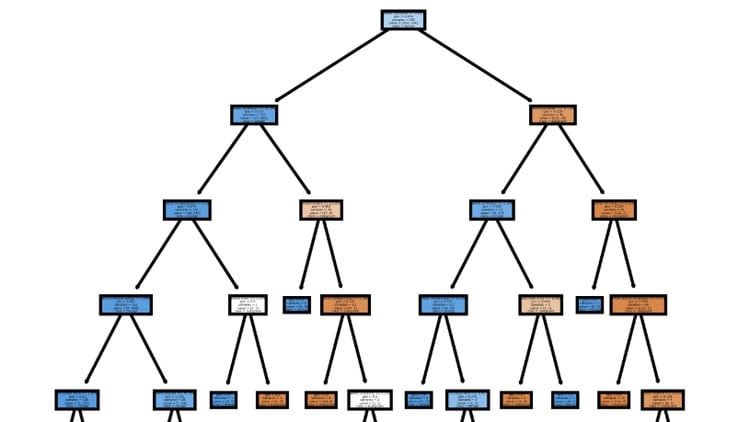If you’re looking to enhance your data science skills, particularly in regression analysis, the "Random Forest Regressors" course on Udemy offers a fantastic opportunity. This course delves into one of the most powerful machine learning algorithms, equipping you with the knowledge and skills necessary to implement and optimize random forest models for regression tasks. Whether you’re a beginner or have some experience in the field, this course provides a structured learning path to grasp the essentials of random forests effectively.
What you’ll learn
Throughout the course, you will gain a comprehensive understanding of Random Forest Regressors and their application in predictive modeling. Key skills and concepts include:
-
Fundamental Concepts of Random Forests: Understanding the theory behind ensemble learning and how random forests improve predictive performance through the aggregation of multiple decision trees.
-
Implementation Techniques: Step-by-step tutorials on how to implement random forests using Python’s Scikit-Learn library. You’ll learn how to prepare your data, build models, and adjust parameters.
-
Model Evaluation: You’ll explore various metrics for evaluating model performance, such as Mean Absolute Error (MAE), Root Mean Squared Error (RMSE), and R-squared values, helping you assess how well your model predicts.
-
Hyperparameter Tuning: Discover techniques to enhance model accuracy, including the significance of various parameters like the number of trees, tree depth, and the minimum number of samples required to split an internal node.
- Real-world Applications: Engage in practical projects that demonstrate how to apply random forest regression to real-world datasets, allowing you to solidify your understanding through hands-on experience.
By the end of the course, you’ll not only understand how to implement random forest regressors but also how to interpret the results and optimize models for better performance.
Requirements and course approach
This course is designed to be accessible to a wide audience. While a basic understanding of Python and some familiarity with data science concepts are beneficial, they’re not mandatory.
Requirements:
- Basic knowledge of Python programming.
- Familiarity with data manipulation libraries such as Pandas and NumPy is a plus, but the course includes foundational content to ensure you’re not left behind.
Course Approach:
-
Hands-On Learning: The course emphasizes practical, hands-on exercises that allow you to apply what you’ve learned immediately. Each module contains coding demonstrations and assignments.
-
Interactive Discussions: Engage with other learners and the instructor through Q&A sections, fostering a collaborative learning environment.
- Visual Aids and Code Snippets: Detailed explanations accompanied by visuals and code snippets make complex concepts more graspable.
This structure is ideal for those who learn best through active participation rather than passive consumption of information.
Who this course is for
The "Random Forest Regressors" course is geared towards a variety of audiences, including:
-
Beginners in Data Science: If you’re starting your journey in data science or machine learning, this course serves as an excellent introduction to one of the most widely used algorithms.
-
Intermediate Learners: Those who have a foundational knowledge in programming and statistics will benefit from the in-depth exploration of random forests and their application.
-
Data Analysts and Aspiring Data Scientists: Professionals looking to expand their analytical skills and implement predictive techniques in their work will find the course highly relevant.
- Students and Researchers: Individuals seeking to enhance their research or academic projects with robust predictive modeling techniques.
Outcomes and final thoughts
By completing this course, participants will emerge with a solid understanding of how to apply random forest regressors effectively in their projects. You’ll have the ability to build predictive models that can handle large datasets with high dimensionality, giving your analysis a significant upgrade.
In conclusion, the "Random Forest Regressors" course on Udemy is a valuable resource for anyone looking to advance their data science skill set. Its hands-on approach, coupled with clear explanations and practical projects, makes it a worthwhile investment for aspiring data scientists. Whether you aim to boost your career or deepen your understanding of machine learning, this course is sure to provide the insights and skills you need to succeed.














